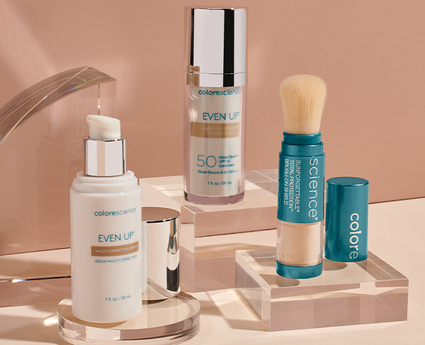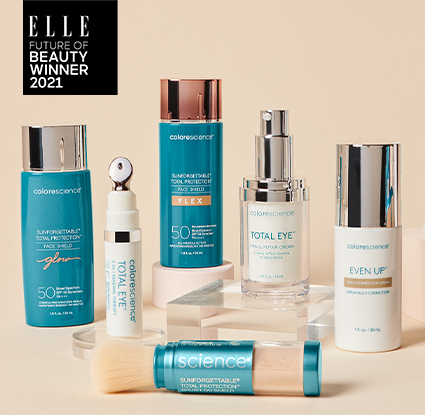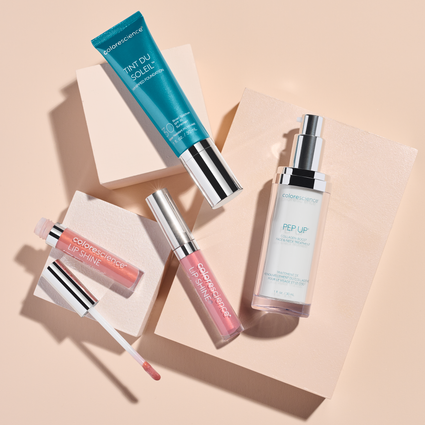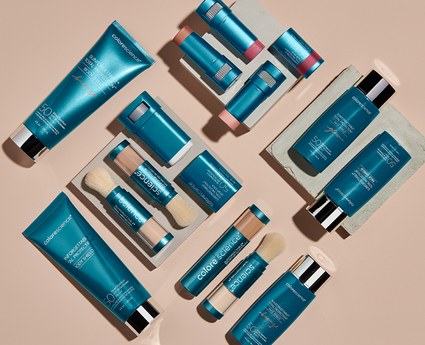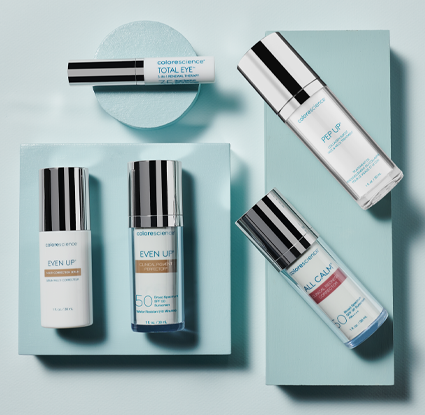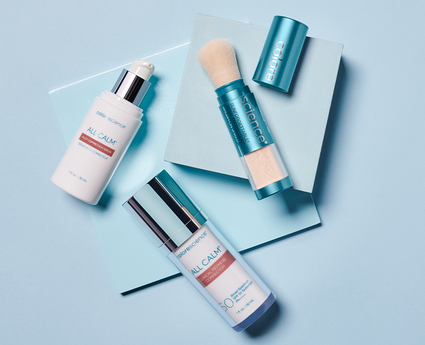What Are Peptides in Skincare?
Everything to Know About Peptides and Their Benefits for Skin
If you’re familiar with anti-aging skincare, you’ve likely heard of collagen – a long-standing staple of youthful skin regimens. But, how is collagen produced? And, what can be done to increase this production to maintain plump, luminous skin? The solution: peptides.
Peptides are the star of your skincare routine. And, why is that? Collagen molecules themselves are too large to absorb through the skin. Peptides, however, are amino acids that can penetrate through the skin barrier and aid in your body’s natural production of collagen from the inside out. Peptides are what your body requires to produce collagen and elastin, keeping skin firm and youthful.
Read on to learn all about peptides, what they are, and how peptides in your daily regimen can help you look younger. Have a burning question? Click on the links below to jump straight to the answer.
- What Are Peptides?
- What Do Peptides Do for Skin?
- What Are Copper Peptides?
- What Changes Can I Expect from Peptides Skin Care?
Let's jump in!
What are Peptides?
This term likely brings you back to your high school biology class. In the most basic sense, peptides are the building blocks that make up protein. When amino acids link together, the chain they form is called an amino peptide. When peptides link together, they become the basis for all protein. The most vital protein within your skin is that magic buzzword, again: collagen.

Collagen lies beneath the epidermis (outer layer of your skin) in what’s known as the “dermis”, a layer made of nerves, blood vessels, fats, elastin (that’s what makes your skin stretchy), and — of course — collagen. Lots of collagen, in fact. Collagen peptides for skin make up about 80% of your dermis. It helps your skin look firm and smooth, cultivating that youthful, radiant glow we all strive for. When you’re young, you produce collagen at a very high rate.
However, as you age, that rate begins to slow. After age 20, your body produces an average of 1% less collagen peptides for skin each year, stopping production entirely around age 40. Not great news. What’s more: your existing collagen begins to break down, known as “fragmenting”. This occurs due to a number of reasons, some of which we can control — and unfortunately, some that we simply can’t.
The most prominent reason for collagen breakdown: aging. Every birthday that passes sees a higher level of fragmenting, and wishing your hardest when you blow out the candles unfortunately can’t stop this process.
However, there are behavioral and environmental reasons your collagen might break down — and these are things you can control. Exposure to UV radiation — whether that be a result of tanning beds or simply leaving the house without donning sunscreen — can break down collagen. Smoking can also lead to its deterioration (as if you needed another reason to quit that habit).
Bottom line: As your skin continues to stretch, new collagen isn’t available to maintain the firm, smooth look it once had. That’s where wrinkles come from.
The moral of the story: peptides = proteins like collagen = anti-aging defense. Without peptides, there’s no collagen, and without collagen, there’s no defense against aging.
What are Copper Peptides?
Perhaps one of the most powerful topical peptides commonly used in skin care is copper peptides. Copper is something that exists naturally within our bodies, and there’s a direct correlation between copper peptides and many degenerative diseases. Studies show that copper peptides not only promote collagen and elastic production, but also promote production of glycosaminoglycans, a very hard to pronounce word for the family of carbohydrates that maintain and support collagen and elastin. Basically, daily use of copper peptide products can help you not only generate collagen, but also maintain the collagen you generate.
Evidence shows that copper peptides may also encourage your skin to remove damaged collagen and elastin as well, as they engage the systems that are responsible for doing so.

What do Peptides Do for Skin?
When is a good time to start using anti-aging skincare? You may be seeing early signs of wrinkles around the eyes or dark spots and be wondering, “is it too late?”
The answer is no. It’s not too late — but the sooner you begin an anti-aging and preventative skincare routine, the better! The number one way to reduce the signs of aging — naturally, at least — is to encourage your skin’s production of collagen. That’s where peptide-packed skincare comes into play. Turns out, applying natural peptides to skin topically may increase your body’s production of peptides. While collagen molecules are too large to penetrate the skin, according to Dr. Jwala Karnik, "peptides are small enough to penetrate the skin, [and] when applied topically, they signal the skin to repair itself." In response to these signals, your skin may boost its production of collagen peptides.

However, peptides are only a small piece of the puzzle. You must incorporate healthy anti-aging habits into your skincare regimen and day to day lifestyle to help improve your chances of retaining that youthful glow.
It’s true that the best defense is a good offense, and skincare is no exception to the rule. While you can’t stop aging, there are ways to delay the effects of it. Proper anti-aging skincare routines include peptides and protection. Healthy habits like the ones listed below, can help keep your skin looking its best whether you are just beginning your skincare journey or are continuing care of mature skin.

- Always wear sun protection: Exposure to UV radiation can wreak havoc on your skin and cause the breakdown of collagen, so make sure you’re slathering on the SPF each and every day.
- Cleanse and moisturize regularly: To keep your skin in good health and looking its best, follow a cleansing regimen that includes regular application of moisturizer.
- Consider your diet: The things you put into your body have an effect on how your body functions and looks. With that in mind, it’s important to stay hydrated and eat a healthy diet rich in fruits and vegetables.
- Be gentle on your skin: It’s also important to remember that your skin is sensitive, and deserves some TLC. Never pull on your skin, as this can cause further collagen deterioration, and avoid using harsh skincare products that do more harm than good.
What Benefits Can I Expect from Peptides in Skincare?
While many companies boast Botox-like benefits of peptides for skin, reality is, that just isn’t true. Peptides cannot totally eliminate under eye bags, fill out lips, or lift brows.
What you can expect from consistent use of peptides in your skincare regimen is steady firming and smoothing of your skin as it becomes tauter and more elastic. The evidence that supports the relationship between peptide skincare and your body’s generation of natural peptides for skin is overwhelming.
If you’re interested in maintaining a healthy, smooth complexion, consider the ways peptide-packed skincare treatments can help.

